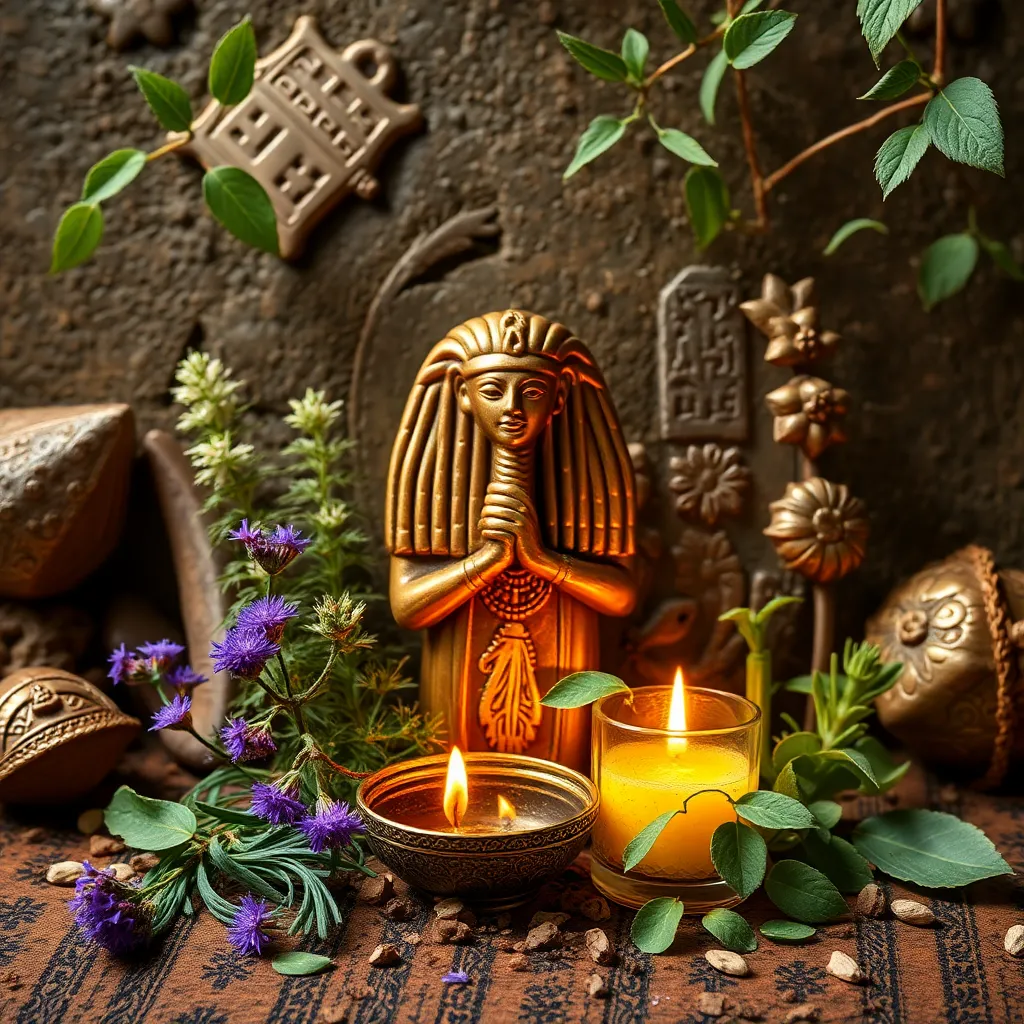The Role of Herbs in Egyptian Love Spells
I. Introduction
In ancient Egyptian society, magic was an integral part of daily life, influencing everything from health to love. The Egyptians believed that love was not merely a feeling but a powerful force that could be harnessed through rituals and spells. Herbs played a crucial role in these magical practices, serving as both symbols and tools in the pursuit of love and affection.
This article aims to explore the significance of herbs in Egyptian love spells, shedding light on their historical context, common uses, and modern interpretations. By understanding these elements, we can appreciate the deep connection between nature, magic, and human relationships in ancient Egypt.
II. Historical Context of Love Spells in Ancient Egypt
The ancient Egyptians had a rich spiritual framework that intertwined magic with their understanding of the universe. Love spells were among the many forms of magic practiced, reflecting the cultural significance of love and relationships in their society.
In ancient Egypt, love was not only about personal relationships but also about social ties and familial bonds. The magicians and priests, regarded as intermediaries between the gods and the people, played essential roles in casting love spells. Their expertise in magic allowed them to manipulate the energies of the universe to bring about desired outcomes in love.
III. Common Herbs Used in Egyptian Love Spells
Several herbs were commonly utilized in Egyptian love spells, each possessing unique properties and symbolism:
- Myrrh: Known for its sweet and earthy aroma, myrrh was associated with love and healing. It symbolized passion and was often used in rituals to attract love.
- Frankincense: This aromatic resin was prized for its sacred status. It represented purity and was believed to enhance spiritual connection, making it a popular choice in love spells.
- Dill: Often used for its protective qualities, dill was also thought to promote fidelity and commitment in relationships.
Historical references to these herbs can be found in ancient texts and inscriptions, indicating their widespread use in love magic throughout Egyptian history.
IV. Preparation and Application of Love Spells
The preparation of love spells in ancient Egypt often involved ritualistic practices that included the use of specific herbs. These rituals were conducted with great care, reflecting the seriousness with which love and relationships were treated.
Steps for creating an effective love spell using herbs typically involved:
- Gathering the necessary herbs.
- Preparing a sacred space, often adorned with symbols of love and attraction.
- Chanting incantations or prayers while focusing on the desired outcome.
- Burning or anointing the herbs in a specific manner to release their magical properties.
Variations in spells existed based on the intended outcomes, such as attracting a new love, increasing passion in an existing relationship, or promoting fidelity.
V. The Symbolic Meaning of Herbs in Love and Relationships
Herbs in ancient Egyptian love spells represented various aspects of love and relationships:
- Passion: Herbs like myrrh and cinnamon were associated with fiery love and desire.
- Fidelity: Dill and other protective herbs symbolized loyalty and commitment.
- Healing: Many herbs were also thought to have healing properties, helping to mend broken relationships.
Moreover, the combination of different herbs could create unique meanings, reflecting the complexity of human emotions and relationships. The influence of nature on these spells highlighted the interconnectedness of the natural world and human experiences.
VI. Modern Interpretations and Practices
Today, many practitioners of modern witchcraft and spirituality draw upon ancient Egyptian practices, adapting them to contemporary contexts. The resurgence of interest in herbalism and natural magic has led to a revival of these ancient love spells.
Contemporary practitioners often incorporate:
- Natural remedies and herbal preparations into their rituals.
- Symbolic representations of herbs in altars and spell work.
- New interpretations of ancient spells that focus on self-love and empowerment.
This adaptation reflects a broader trend of returning to nature and seeking holistic approaches to love and relationships.
VII. Ethical Considerations in the Use of Love Spells
While the allure of love spells can be strong, ethical considerations must be taken into account. Key aspects to consider include:
- Consent: It is essential to respect the free will of others. Love spells should not manipulate or coerce someone into feeling a certain way.
- Cultural Appropriation: Practitioners should be mindful of the origins of these practices and approach them with respect and understanding.
- Balance: Striking a balance between personal desires and the respect for others’ autonomy is crucial in the practice of love magic.
VIII. Conclusion
Herbs have played a significant role in Egyptian love spells, intertwining with the cultural and spiritual practices of ancient Egypt. The enduring legacy of these practices highlights the deep connection between nature, magic, and human relationships.
As we reflect on the significance of herbs in love magic, we are encouraged to explore further the fascinating world of herbalism and its applications in modern contexts. Understanding the past can provide valuable insights into our own relationships and the magic we can create.




